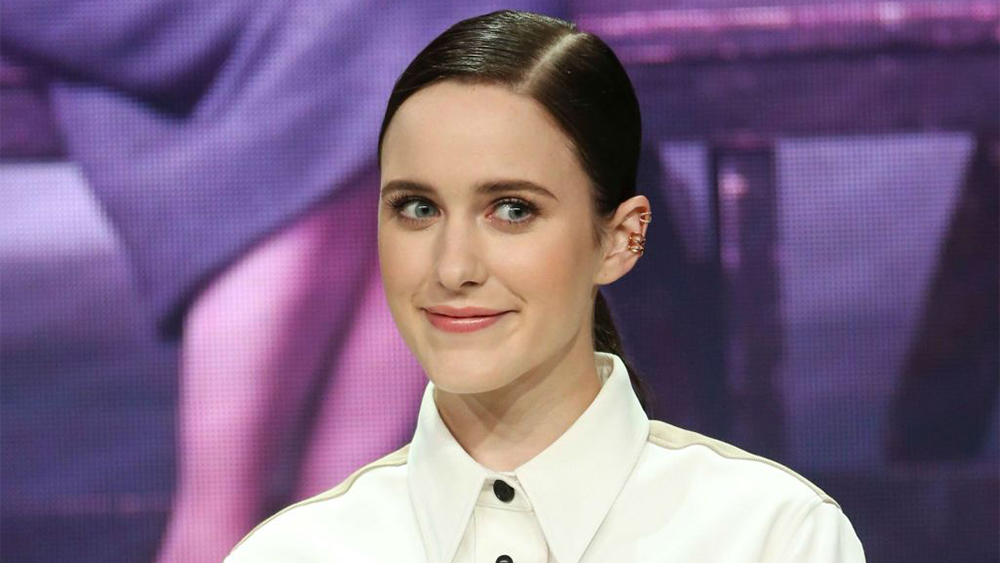‘The Marvelous Mrs. Maisel’ Team Talks ‘Big’ Season 2
By Danielle Turchiano
LOS ANGELES (Variety.com) – The first season of Amazon’s Golden Globe-winning — and now Emmy-nominated — comedy “The Marvelous Mrs. Maisel” ended on a high note for the titular character. But times may be changing when the show returns to her world in its second season.
“We left Midge in a pretty triumphant moment: She’s finally arrived into Mrs. Maisel, a stand-up comedienne,” series star Rachel Brosnahan said at the streamer’s Television Critics Assn. tour panel for the show Saturday, “but good things can’t last long.”
The relationships between Midge (Brosnahan) and Susie (Alex Borstein), as well as Midge and Joel (Michael Zegen) will continue to be the center of the show.
“Finding her Mozart” in Midge, Borstein said, exploded Susie’s world. “She’s changing — every single molecule’s shifting, but she’s so excited. She finally found the great love of her life, which is Midge [and] I mean that in a larger sense, not in a romantic [one].”
For Midge and Joel, co-parenting will be key, with Brosnahan admitting “they will never be able to be without each other in some capacity, and [that] creates a dramatic tension,” the depths of which will be explored in season 2.
But don’t expect their romantic rekindling at the end of the first season to be smooth sailing. Joel will still be stinging from seeing how Midge is succeeding without him — and where he can’t.
“He’s kind of stuck between a rock and a hard place because on the one hand he loves Midge and he saw that she was really talented, but on the other hand, it’s a big blow to his ego that she’s really talented,” Zegen said.
, who created the show along with her husband Dan Palladino, said that they “had to go for it” in the second season.
“Season 2 is big…And we feel like we’ve got, for the first time in our career, the support from the brass, the actors — we have all of the pieces to go big or go home,” Sherman-Palladino says.
Sherman-Palladino admitted that there is a lot of pressure going into a second season of “Maisel,” not because of the awards and critical acclaim it received for its first year, but because of the caliber of people they have working on the show.
“We have such an amazing group of actors, and when you have a group of actors of this caliber, that means the stories and the scripts and the dialogue have to be of a certain caliber or we’re doing a disservice,” she said. “So that is a self-imposed nausea that’s always there.”
As time moves on in the show, the world around Midge changes greatly. The end of the 1950s, when the show is set, had historical importance with the Korean War and McCarthyism, for example. But “Maisel” is choosing instead to focus on Midge’s specific world.
Inherently, the show will incorporate “a bit of the reflection of the politics that are going on” because Midge is a character “going through a change and realizing the box she was put in.”
“We are dramatizing a woman’s struggle at a time when she wasn’t supposed to have that voice or make those changes,” she said. “Women are still trying to break out of that box — hooray for no progress from the ’50s.”
But, Sherman-Palladino adds, they don’t set out to “mimic or capitalize or…mine” the political landscape.
Sherman-Palladino also acknowledged that the time period in which the show is set poses some particular challenges when it comes to how inclusive its cast and characters can be.
“As writers you want the diversity because you want to express the world,” Sherman-Palladino says. “It’s interesting to try and find that balance and try and represent a 1959 that is true to what 1959 was in a sense because what you don’t want to do is pretend there are no problems and pretend these things didn’t exist.”
The realism of the world is important to those who make the show. “Usually what we spend our time doing is asking our extremely qualified researcher to find out if they said ‘c—‘ [then],” Sherman-Palladino said. “And they did.”

